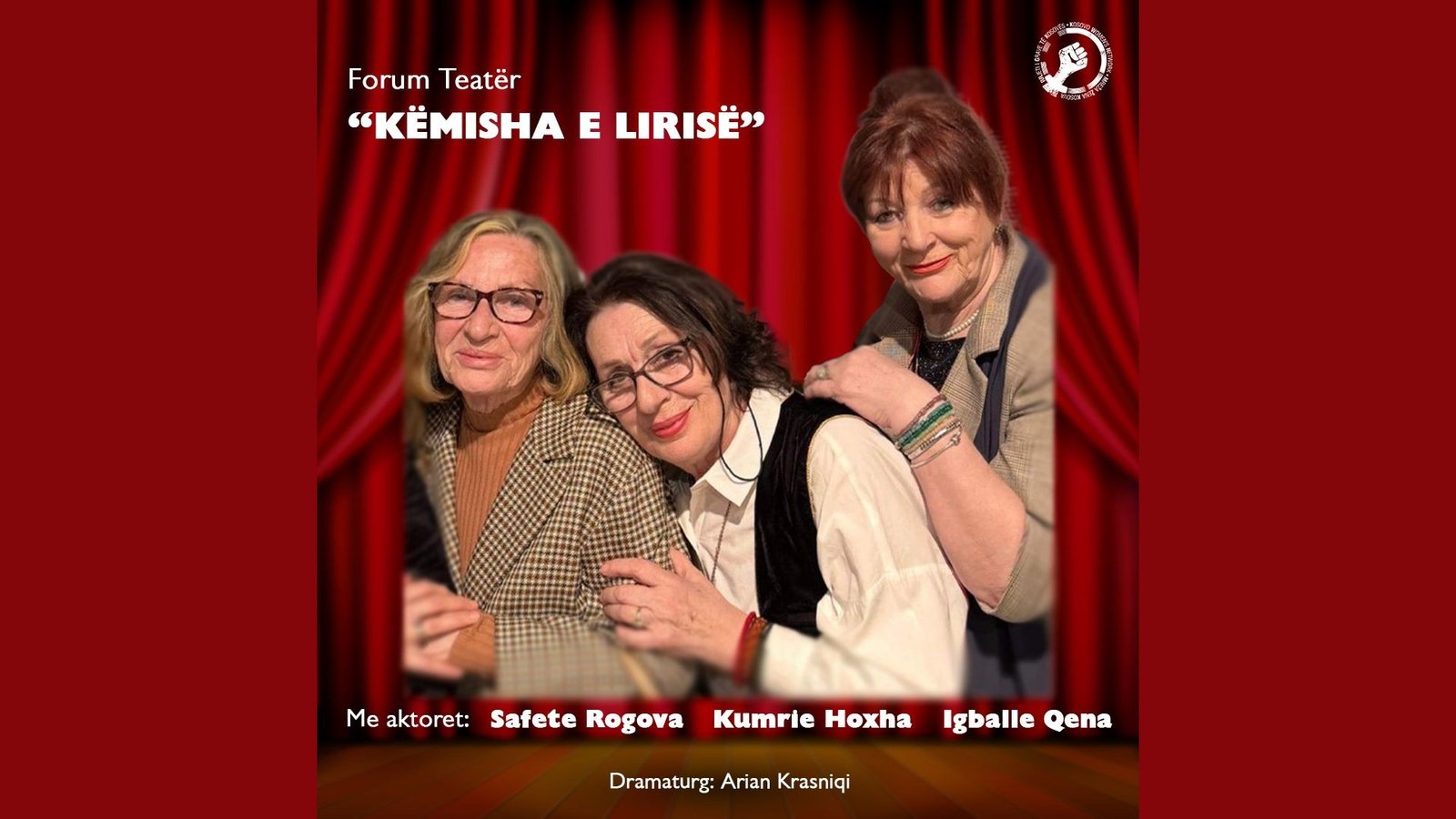Artists such as Marie Kraja rarely emerge in the Albanian artistic world. She is a symbol of Albanian musical art, and one of the most prominent figures in this genre. Wherever she contributed, be it in the interpretation of popular songs, the virtuosity of operatic vocals, or even in the field of pedagogy and teaching the younger generation with a passion for singing, she dedicated herself wholeheartedly and with great passion.
“When I was little, my father asked me if I wanted to be a teacher or a singer. I chose singing because I believed in my ability. He advised me to study to become a singer, saying, ‘Who knows, maybe one day you can sing in the opera in our country,'” Marie Kraja confessed in a 1974 interview broadcast on Radio Television of Pristina.
And her father’s prediction came true. Marie Kraja became the first Albanian opera singer, performing in the inaugural Albanian opera “Mrika.” Born in Zare, Dalmatia, in 1911, Marie Kraja moved to Shkodër with her family at the age of 6.
She completed her advanced singing studies at the Conservatory of Graz in Austria from 1930 to 1934. Her debut took place at the “Evening of Nations” in Vienna, where she represented Albania by interpreting two Albanian popular songs.
“In Vienna, at the meeting of Nations, in addition to performing foreign songs, I also sang two Albanian songs that left a great impression at the time. The press spoke well of it too. This year in Graz, I sang at the inauguration of the ‘Mocarti’ hall. Then, I returned to my homeland, enthusiastic,” said Marie Kraja.
Her activity in Albania began in 1934, alongside pianist Tonin Guraziu, in a concert in Tirana. In 1938, despite maintaining a busy concert schedule, she started working as a music teacher at the “Queen Mother” Institute. Later, she taught at Radio Tirana and the Artistic Lyceum in 1946. With the opening of the High Institute of Arts, Maria began teaching there. Since the inception of the Opera and Ballet Theatre, she sang from its first premiere and was one of the first soloists of the Theatre.
Even after retiring, she did not give up her teaching activity.
Marie Kraja brought a new tradition of singing to Shkodër, alongside other progressive women in music such as Tefta Tashko Koço. Her musical influence extended beyond Albania, with a dense and rich activity on international stages, including Italy, Austria, Germany, China, Korea, Czechoslovakia, Hungary, Bulgaria, and the former Soviet Union.
Despite her engagement with folk songs, Marie Kraja delved into the works of classical composers such as Schumann, Schubert, Weber, Beethoven, Mozart, Strauss, Bach, and more, as noted by publicist Albert Vataj. However, her true passion lay in collecting folk songs. She meticulously gathered 300 folk songs, particularly from the northern region of Albania. These songs were sourced from cities such as Pejë, Gjakovë, Shkodër, Korçë, Berat, Elbasan, Tirana, and others. This valuable collection found its preservation in the Radio-Tirana institution, serving as a significant repository of Albanian cultural heritage.
Maria also faced challenges with the communist system, becoming a target as someone with a perceived “bad biography” rooted in allegations that her family had connections with exponents of Nazism. These accusations were a means to crucify her artistically and tarnish her reputation. Despite these adversities, she continued to hold a special place in the public’s heart as a source of pride for Albanian song and a world-class professional in interpretation.
Numerous articles, essays, and evaluations have been dedicated to People’s Artist Marie Kraja by various authors. Musicologist and music critic Spiro Kalemi, who authored a monograph on Marie Kraja, expressed:
“Maria, through her singing, skillfully unraveled the dynamics of civic life, shedding light on various social motives and capturing the worldview of an era. Her songs authentically reflected the tastes of a particular environment. Simultaneously, her adept use of singing techniques and voice created a harmonious fusion for both the poetic and musical elements of the songs,” states Kalemi.
Lecturer and researcher Ferid Bala, in “Songs and Singers from Shkodër” (Shkodër, 2014), offers his perspective: “In our opinion, Marie Kraja elevated folk songs from the confines of family audiences to open concert settings accessible to people of all ages and genders. Overcoming the vocal limitations of ordinary folk singers and steering clear of the excesses seen in many professional artists regarding phrasing and vocal density, Marie’s measured and precise singing style became an exemplary model. The enduring appeal of the songs performed by Marie Kraja, in our view, is largely attributed to two factors – the inherent value of the songs themselves and, secondly, the way she interpreted them,” he affirms.
For her extensive artistic contributions, Marie Kraja received numerous honors, titles, orders, and medals. In 1961, she was among the first to be awarded the prestigious title of “People’s Artist.” Despite the passage of years, Marie Kraja continues to stand as a symbol of Albanian music. In 1986, on the occasion of her 85th birthday, she was honored with the “Grand Master of Work” order. As a testament to the enduring appreciation for her work and legacy, the “Marie Kraja” International Opera Festival was established, successfully celebrating its 19th edition in May of this year.
Marie Kraja passed away in Tirana on November 21, 1999. Her legacy lives on through her profound impact on Albanian music and the lasting recognition bestowed upon her in the form of awards and festivals.




